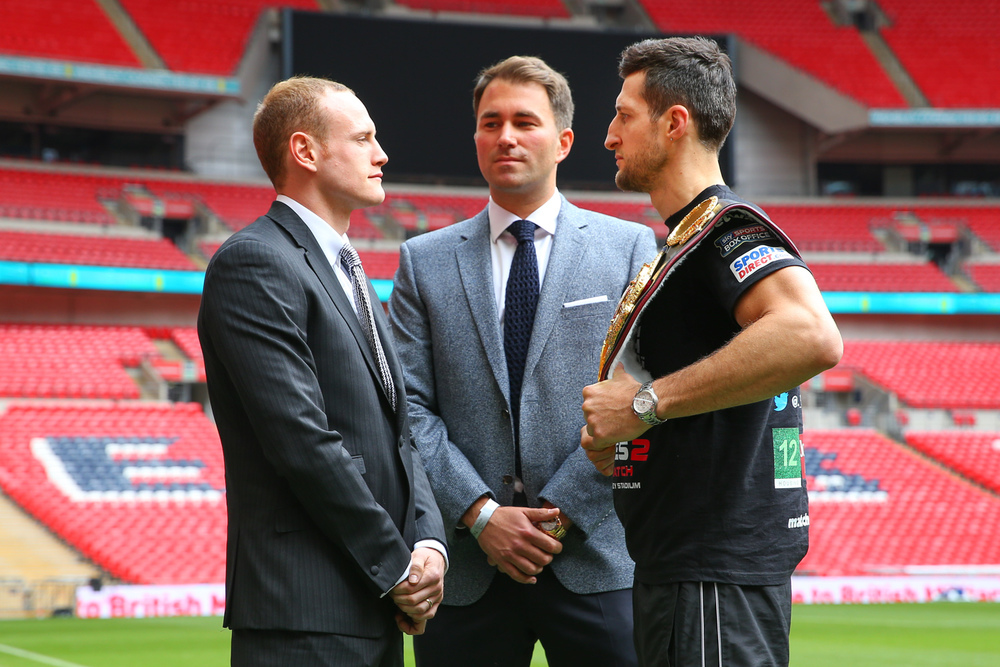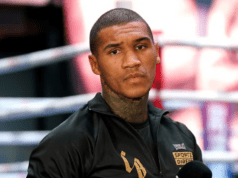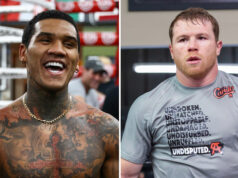The aging process of fighters is one far less subtle than that of most other human beings. As the bones become brittle, the muscles worn, the skin bruised and reflexes dimmed, boxing’s unflinchingly brutal nature ultimately pushes all physical maladies to the fore. The body can betray a fighter right there, in front of the bright lights that once shone on them, the crowds that once adored them, when they were at their physical apex.
Over the course of the last six years, Carl Froch has planted his feet and pursued victory in the most violent of ways, his unstinting aggression refusing to be tempered by the quality of the opponent in front of him. It is the case for all fighters of such a style, however, that there comes a point at which that raw aggression becomes as much a weakness as it is a strength. As the saying goes, fighters can become old overnight. There are of course those who guard themselves better against the passing of time, as if estranging themselves from the inescapable laws of boxing nature, but eventually it comes to an impasse, usually by way of uncomfortable defeat.
One uncertainty that hovers above this rematch is the ability of Froch to absorb the level of punishment he has successfully been able to throughout his career. I specifically use the word ‘ability’ because no-one could ever question his willingness. It is an uncertainty borne out of Froch-Groves I where, although the victor, Froch took a painful beating for six rounds, including the heaviest knockdown of his career, before his younger challenger wilted in the heat of battle.
Nonetheless, should Froch finally blink under the effects of sustained punching received this weekend there will be nothing overnight about his demise. It will be the result of years of grueling fights; from his first world title win against Jean Pascal, through his come-from-behind last round victory against Jermain Taylor, the duo of thrillers with Mikkel Kessler and the last fight with Groves.
If one were searching for signs of decline, the obvious place to go looking would be that first Groves fight, though a more subtle hint was evident in the second bout with Kessler. Late in the fight, as Kessler roared back, Froch stumbled ever so slightly. His legs temporarily crossed over and encouraged the Dane to attack. It was a momentary blip but also perhaps a telling sign that, even before the Froch-Groves rivalry was beginning, Froch’s legendary durability may have been on a slow descent.
There can be little doubt about the conditioning of Froch as he heads into the biggest fight to occur on British soil in decades. He is primed and ready to eradicate all doubt from his first meeting with Groves in front of a post-war record crowd. Even so, those seeds of doubt have regardless been planted, and it is difficult to imagine this rematch being anything other than a toilsome affair for Froch should he want to overcome Groves’ apparent advantages in hand speed.
Carl Froch will be prepared for the difficulties that await him on Saturday night; indeed he professes to have left no stone unturned in his quest to end this bitter rivalry in victorious fashion. But there is one thing no fighter can train for, and that is the moment their body lets them down.
There is an ominous air ahead of Froch-Groves II, a feeling that this is a fight that simply cannot end nicely for both. As a result, Carl Froch must hope he is able to stave off the aging process for just one more fight if he is to quell the force of the younger man on the night.











